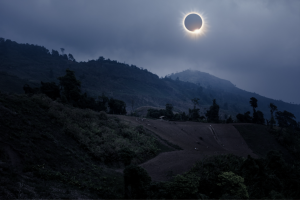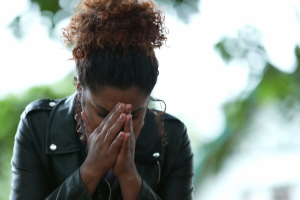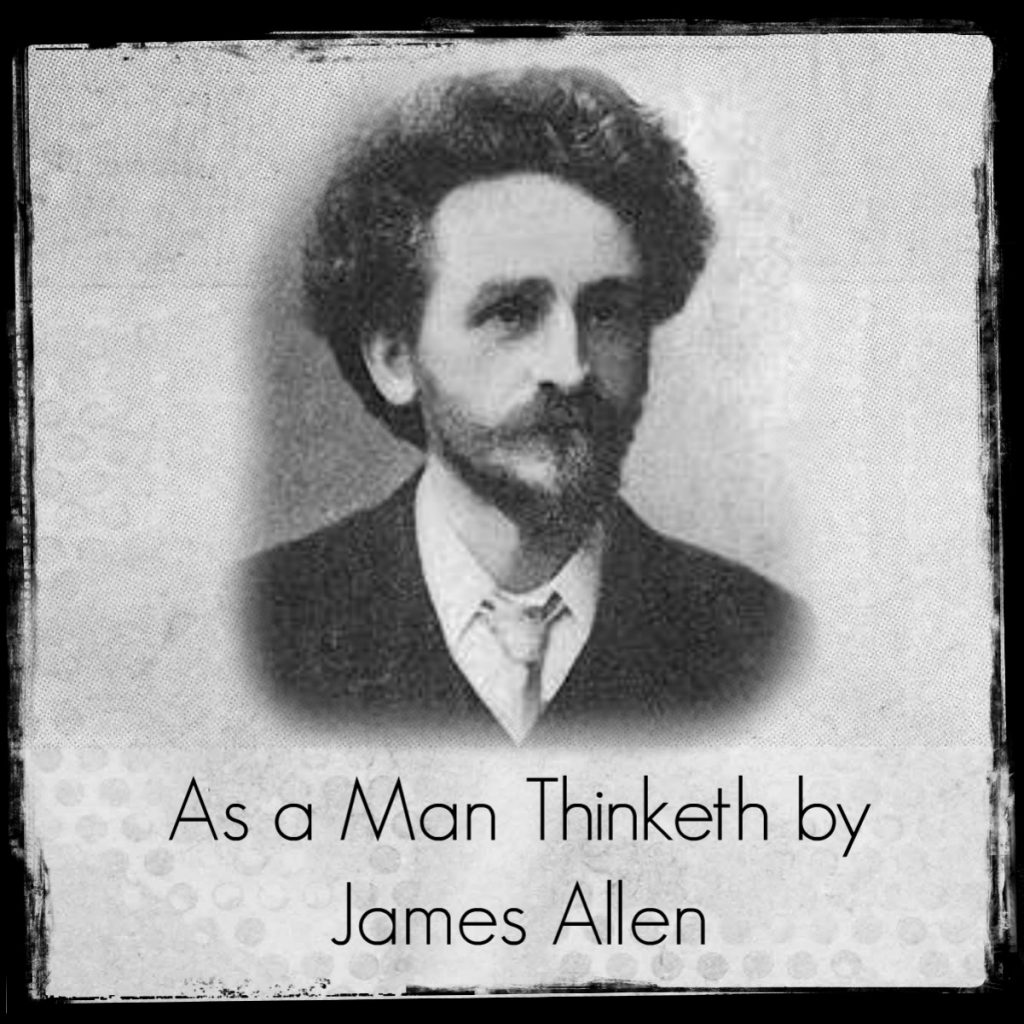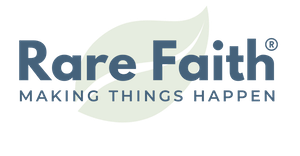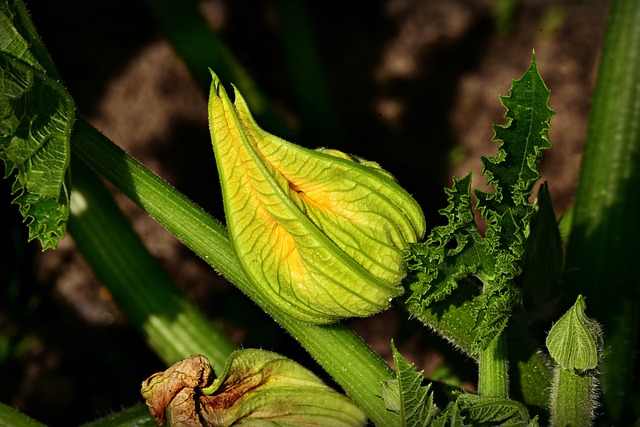
By Cristie Gardner
Albert Einstein is credited with saying that “the definition of insanity is doing the same thing over and over and expecting different results.”
And if he didn’t say it, he should have! If there is one law upon which we can always depend, it is the law of cause and effect. This law gives us faith to know that our actions will bring about reliable results. We can create a clear target result, or effect and then take the exact steps needed to reach that goal.
Recently we went to the garden center and bought MANY packets of seeds. We talked with one of the ladies working there, and she was obviously experienced in gardening. (And so are we, because after all, we’re Gardners 🙂 ! But she knew a lot more than we do. She told us which plants could be planted outside now, and which have to wait until the snows are off the smaller mountains to our west. Every year we get a little better, because we love the idea of being more proficient in producing our food, and we have taken action every year to do better than the previous year.
Last year, we started our garden a little bit later than usual, and we bought plants that LOOKED like, and SAID they were, certain plants, but they grew entirely different produce from what we had intended. Someone had mislabeled our plants and so instead of zucchini, we grew crookneck squash. Instead of red ripe watermelon, our melons had yellow fruit inside. Our butternut squashes didn’t ever grow, whereas the previous year the plants had produced nearly a hundred squashes. It was an interesting lesson in cause and effect. Because someone had simply assumed what types of plants they were, and labeled them incorrectly, we ended up with an entirely different garden than we had intended.
There are SO many life lessons in gardening that can teach us about the law of cause and effect. What we plant, we harvest. I cannot grow a watermelon if I plant corn seeds instead.
When I choose a course of action, I choose the ultimate end result of that action if I choose to continue along that course. I can set things in motion and abandon them, but by law I cannot obtain an end result different from the trajectory I have begun, if I continue on that course.
As I look back in my life, I can pinpoint decisions I have made which, if I had chosen differently, would have completely altered my life. My life today would not be anything like it is, had I made those different choices. Such is the power in the law of cause and effect. It is a law upon which all other laws that operate in God’s universe stand.
What if I had never said, “yes,” when my then high school friend asked me on a date? What if I had chosen to remain silent when an ethical question arose at the school meeting? What if I had chosen to sleep in on that morning? What if I had never gone ahead with my fierce desire to be a podcaster, and share my message and legacy with my children and grandchildren? What if? What if? What if?
Benjamin Franklin wrote:
For want of a nail the shoe was lost.
For want of a shoe the horse was lost.
For want of a horse the rider was lost.
For want of a rider the message was lost.
For want of a message the battle was lost.
For want of a battle the kingdom was lost.
And all for the want of a horseshoe nail.
If we only looked at the past with cause and effect, we might become discouraged and hopeless about the future. After all, as they say, “Hindsight is 20/20.” Maybe that’s why now, in the year 2020, it’s even more important to be deliberate about our choices. It’s easy to see where we missed steps; easy to see where we could have made better choices. We can wring our hands and woefully look back on what happened as a result of our negligence or laziness or thoughtlessness, and we can rake ourselves over the coals with regret. I wrote a poem about that that I’d like to share with you:
Embracing the Present, by Cristie Gardner
The past has passed. It’s over, Forget it.
To dwell on it, ponder: complain or regret it,
Will only prove futile, for you have gone on.
And the time that has passed is now time that is gone.
You cannot move forward if you are behind it:
To pause, or stand still, or attempt to rewind it
will render you hopeless and helpless and caught.
If you’ve traded your substance for all that is naught.
Move on then, with vigor, full measure and more,
Move into the present as never before.
Move far from the goal that would lead you astray
Embrace all around you and live for today!
The magic of the law of cause and effect is this: just as we can look back and see how different choices would have changed the trajectory of our lives, we can look forward to the goals we seek, and we can create a planned pathway to those goals. We can literally be creators in our lives, and deliberately move in the directions that take us where we want to go. Even if our outcome is dependent upon others’ choices, we can begin to move in the direction we desire, prayerfully and thoughtfully taking action. We can look to the examples of others and see where their choices have taken them. We can choose to do likewise.
We can be deliberate about each choice we make, rather than choosing to live our lives by default. Living by default is also a choice and also falls within the parameters of the law of cause and effect. For example, if I choose to sleep in rather than get up to work out, my end results will differ if I continue on that trajectory. Incremental changes will occur over time, but all choices lead to results.
Ralph Waldo Emerson said, “Shallow men believe in luck or in circumstance. Strong men believe in cause and effect.”
For every effect there is a definite cause. Likewise for every cause, there is a definite effect. Your thoughts, behaviors, and actions create specific effects that manifest and create the effects and results in your life.
This law is incredibly empowering! To know that we are creators in every sense of the word allows us to change our course, if we decide the end result is not what we seek.
J.E.B. Spredemann said, “Choices made, whether bad or good, follow you forever and affect everyone in their path one way or another.”
And Anthony Liccione said, “Burning bridges behind you is understandable. It’s the bridges before us that we burn, not realizing we may need to cross, that brings regret.”
Our thoughts are creative. Thoughts are embedded with the power of creation. For better or worse, they affect our speech, behaviors, and actions. Our thoughts are seeds planted in the soil of consciousness. And then, as surely as night follows day, results that we reap come from the seeds we have sown.
Another powerful aspect of the law of cause and effect is this: we can choose our response to the circumstances that befall us. There are some things we absolutely cannot control; the biggest one being our past. We cannot control others’ responses to us (although we can influence them). We cannot control getting exactly what we want, exactly when we want it. The law of cause and effect interfaces with all of the other laws, and we cannot always see exactly what our results will be in every situation.
Some events that occur in our lives may be the result of another person’s cause. When I was at Brigham Young University, one of my dear friends was killed when a drunk driver hit her on her way home from work. People can make rude, hurtful comments and affect another’s confidence. People can abuse others both physically and mentally. For those who have been through such painful experiences, we need to allow ourselves the grace and compassion to heal and get through. Counseling can be helpful, and give us new perspective. But ultimately, we can make the choice to be a victim or a victor. Others have been through the same or worse, and others have chosen to give up or move forward. The choice, as long as we live, is ours as to HOW we live.
Because I believe that God has definite plans for us, and He knows the past, present, and future as one, I can have faith that what happens will be the best for me, if I engage fully in creating the causes that will manifest with the effects I seek.
“When two things occur successively we call them cause and effect if we believe one event made the other one happen. If we think one event is the response to the other, we call it a reaction. If we feel that the two incidents are not related, we call it a mere coincidence. If we think someone deserved what happened, we call it retribution or reward, depending on whether the event was negative or positive for the recipient. If we cannot find a reason for the two events’ occurring simultaneously or in close proximity, we call it an accident. Therefore, how we explain coincidences depends on how we see the world. Is everything connected, so that events create resonances like ripples across a net? Or do things merely co-occur and we give meaning to these co-occurrences based on our belief system? Lieh-tzu’s answer: It’s all in how you think.”A young woman went to her mother and told her about her life and how things were so hard for her. She did not know how she was going to make it and wanted to give up. She was tired of fighting and struggling.
It seemed that, as one problem was solved, a new one arose. So her mom took her to the kitchen. She filled three pots with water and placed each on a high fire. Soon the pots came to a boil. In the first, she placed carrots, in the second she placed eggs, and in the last she placed herbal tea leaves.
She let them sit and boil, without saying a word. In about twenty minutes, she turned off the burners. She fished the carrots out and placed them in a bowl. She pulled the eggs out and placed them in a bowl. Then she ladled the tea out and placed it in a bowl. Turning to her daughter, she asked, “Tell me, what do you see?”
“Carrots, eggs, and tea,” the young woman replied. The mother brought her closer and asked her to feel the carrots. She did and noted that they were soft. She then asked her to take an egg and break it. After pulling off the shell, she observed the hard-boiled egg. Finally, she asked her to sip the tea. The daughter smiled as she tasted its rich flavor. The daughter then asked, “What does it mean, mother?”
Her mother explained that each of these objects had faced the same adversity – boiling water – but each reacted differently. The carrot went in strong, hard and unrelenting. However, after being subjected to the boiling water, it softened and became weak.
The egg had been fragile. Its thin outer shell had protected its liquid interior. But, after sitting through the boiling water, its inside became hardened! The tea leaves were unique, however. After they were in the boiling water, they had changed the water.
“Which are you?” the mother asked her daughter. “When adversity knocks on your door, how do you respond? Are you a carrot, an egg, or tea leaves?” Think of this: Which am I? Am I the carrot that seems strong but, with pain and adversity, do I wilt and become soft and lose my strength? Am I the egg that starts with a malleable heart, but changes with the heat? Did I have a fluid spirit but, after a death, a breakup, or a financial hardship, does my shell look the same, but on the inside am I bitter and tough with a stiff spirit and a hardened heart? Or am I like the tea leaves? The leaves actually change the hot water, the very circumstance that brings the pain. When the water gets hot, it releases the fragrance and flavor.
If you are like the tea leaves, when things are at their worst, you get better and change the situation around you. When the hours are the darkest and trials are their greatest, do you elevate to another level? How do you handle adversity? Are you a carrot, an egg, or tea leaves?
Zlatoslava Petrak said,”You are the master of your life – you are the master of your mind – you have the power to change the way you think and feel. You have the power in you to achieve your goals, to become the person you want to be, and to live the life of your dreams.”
Life can be full of excitement, adventure, learning, and growing. Or it can be ineffectual, filled with regrets, empty days, and laziness. We choose. The power of choice is preeminent in all of the Laws of God, and it governs the Law of Cause and Effect.
_____________
For more about the seven laws that govern prosperity, click here to read Hidden Treasures: Heaven’s Astonishing Help With Your Money Matters FREE.
Together, Cristie and her husband have raised their eight fantastic children and they combine their talents to help the world get healthier from the inside.
- Working with the Law - September 23, 2020
- Confidence Despite Discomfort - September 23, 2020
- I’ve Got Rhythm–Who Could Ask For Anything More? - May 4, 2018



